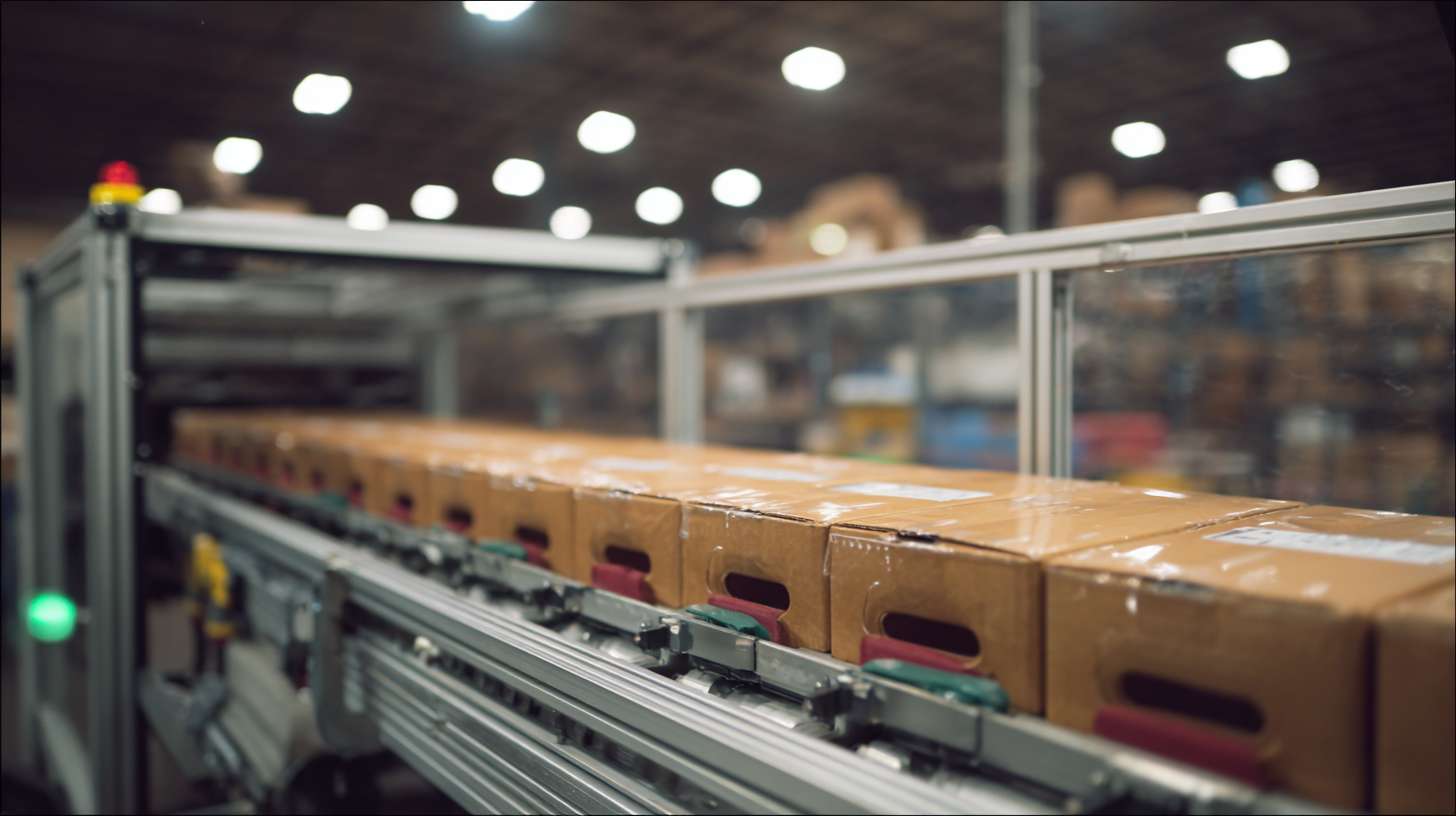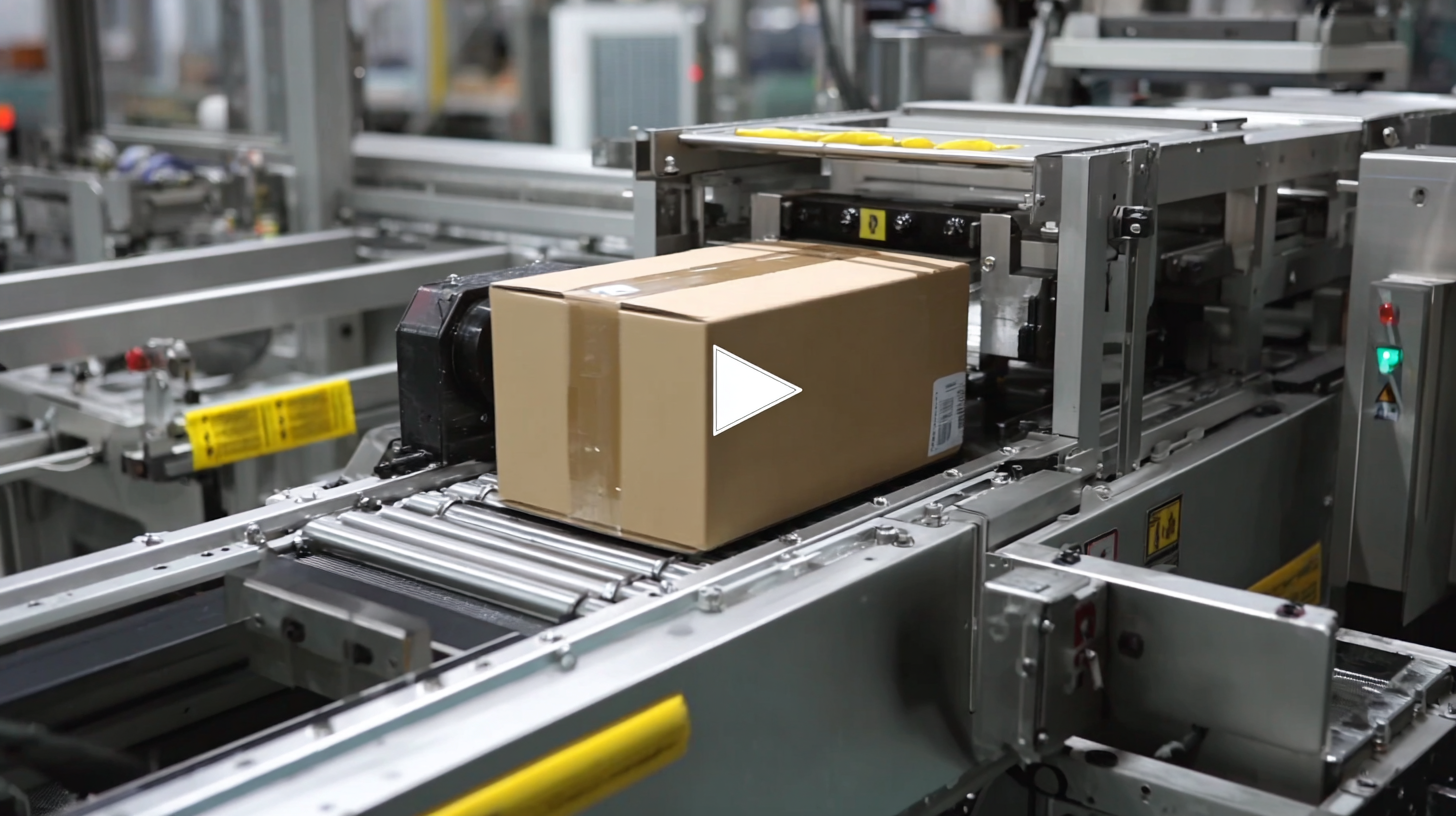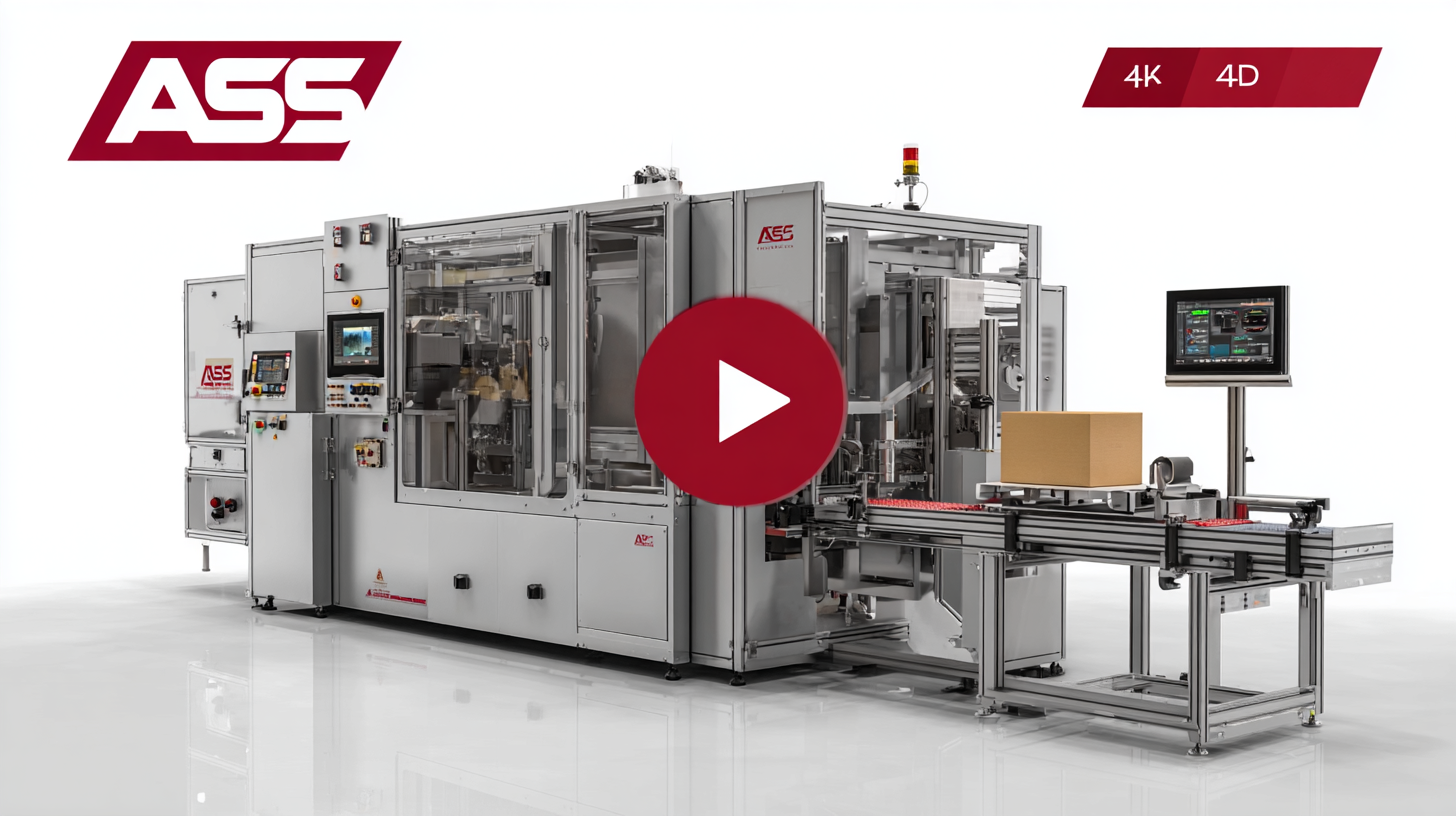Adhering to Industry Standards: How to Choose the Best Automatic Case Sealer for Optimal Efficiency
In today's fast-paced packaging industry, the selection of an Automatic Case Sealer is critical for ensuring optimal efficiency and meeting stringent industry standards. According to a recent report by Smithers Pira, the global packaging market is projected to reach $1 trillion by 2024, driven largely by advancements in automation and demand for speed and consistency. With the increasing emphasis on operational efficiency, manufacturers are leveraging automatic case sealing technology to enhance productivity and reduce labor costs.

As businesses strive to improve their supply chain processes, understanding how to identify the best Automatic Case Sealer has never been more pertinent. By adhering to industry standards and utilizing a well-structured checklist, organizations can make informed decisions and optimize their packaging operations, ultimately positioning themselves for success in a competitive marketplace.
Understanding Industry Standards for Automatic Case Sealers
When selecting an automatic case sealer, it is crucial to understand the industry standards that govern performance and efficiency. Automatic case sealers have become indispensable in modern packaging processes, driven by the increasing demand for faster, more reliable, and cost-effective solutions. Industry standards focus on factors such as sealing quality, machine mobility, and compatibility with different box sizes and materials. Familiarizing oneself with these standards not only aids in compliance but also ensures that the equipment you choose aligns with your operational needs.

The evolution of automated case sealing technology highlights an ongoing transformation within the packaging industry. Recent market trends indicate a steady growth trajectory for box sealing machines as businesses increasingly adopt automation to enhance productivity and reduce operational costs. The latest innovations in design and functionality mean that today's case sealers can offer heightened efficiency while accommodating various sealing methods, such as hot melt and adhesive tape. By choosing machines that meet established industry standards, manufacturers can optimize their workflows and maintain a competitive edge in the market.
Key Features to Look for in a High-Efficiency Case Sealer
When selecting an automatic case sealer for optimal efficiency, several key features come into play. First and foremost, the machine's sealing speed is crucial. A high-efficiency case sealer should provide rapid sealing without compromising the quality of the seal. Look for models that can handle a high volume of cases per hour, ensuring that your production line remains uninterrupted. Additionally, the ability to adjust sealing widths and heights accommodates various case sizes, enhancing versatility and productivity.
Another essential feature is the type of sealing technology used. Tape and adhesive sealing methods can both be effective, but tape sealers often offer a quicker setup and reduce the likelihood of contamination. Furthermore, the incorporation of sensors and automated adjustments enhances precision, allowing the sealer to adapt to varying case sizes and materials seamlessly. Moreover, ensure that the machine is designed for easy maintenance, as a user-friendly interface and accessible components can significantly minimize downtime and keep operations running smoothly. Investing in these features will not only improve efficiency but also contribute to the overall sustainability of your packaging process.
Evaluating Performance Metrics: Speed, Consistency, and Reliability
When selecting an automatic case sealer, evaluating performance metrics is crucial to ensure optimal efficiency in your packaging line. Speed is one of the foremost factors to consider, as a higher sealing rate can significantly enhance throughput. Modern sealers often boast adjustable speeds, allowing manufacturers to match the equipment’s performance with production demands. This flexibility can be particularly beneficial during peak times, where maximizing output without sacrificing quality is paramount.
Consistency is another essential metric, as it directly impacts the integrity of your packaging. A reliable case sealer should maintain uniform sealing across all cases, preventing leaks or damage during transport and storage. Look for machines equipped with advanced technology that ensures precise sealing, regardless of variations in case sizes or materials. Additionally, the ability to perform regular quality checks can further enhance consistency throughout the operational process.
Finally, reliability cannot be overlooked. Over time, an unreliable machine can lead to costly downtime and maintenance issues. Investing in a well-constructed sealer with a proven track record will not only minimize interruptions but also promote long-term operational efficiency. Selecting a case sealer that excels in speed, consistency, and reliability sets the foundation for a seamless packaging operation, ultimately contributing to the overall success of your business.
Automatic Case Sealer Performance Metrics
Checklist for Selecting the Right Case Sealer for Your Business Needs
Choosing the right automatic case sealer for your business is crucial for streamlining operations and maximizing efficiency. When selecting a machine, consider factors such as the volume of products you handle, case sizes, and seal types. According to a recent report by Smithers Pira, the packaging machinery market is projected to grow at a CAGR of 3.5% through 2025, underscoring the importance of investing in reliable equipment that can adapt to industry advancements.
**Tip:** Assess your production demands to identify whether a semi-automatic or fully automatic case sealer suits your needs. Fully automatic models are ideal for high-volume operations, while semi-automatic units may be more suitable for smaller batches or varied product lines.
Another key consideration is the machine's compatibility with your existing packaging lines. Many top-performing sealers now come equipped with features allowing for easy integration with other automation systems. A report by MarketsandMarkets indicates that companies that utilize automated packaging can expect efficiency improvements of up to 35%.
**Tip:** Always check for the machine's adaptability to different case sizes and materials, as well as its ease of maintenance. These factors can significantly reduce downtime and enhance your overall operation’s sustainability.
Adhering to Industry Standards: How to Choose the Best Automatic Case Sealer for Optimal Efficiency
| Dimension | Details |
|---|---|
| Type of Sealer | Tape Sealer, Glue Sealer, Strapping Sealer |
| Production Speed | Up to 20 cases per minute |
| Size Compatibility | Adjustable for Small, Medium, and Large Cases |
| Power Source | Electric, Pneumatic, Manual Options |
| Ease of Use | User-friendly Interfaces with Touch Controls |
| Maintenance | Low Maintenance with Easy Access Points |
| Cost | Ranges from $2,000 to $10,000 depending on features |
| Safety Features | Emergency Stop, Safety Guards, Automated Shut-off |
| Warranty | 1 Year Parts and Labor |
Future Trends in Automatic Case Sealing Technology and Their Impact
As the demand for efficiency and precision in packaging continues to rise, future trends in automatic case sealing technology promise to revolutionize the industry. Innovations such as smart automation and AI-driven systems are becoming increasingly integrated into machinery, allowing for real-time monitoring and adjustment of sealing processes. These advanced systems not only enhance speed but also significantly reduce the likelihood of errors, ensuring a reliable seal every time. The adoption of Internet of Things (IoT) technology enables seamless communication between machines, allowing for smarter logistics and maintenance forecasting, thus increasing overall productivity.
Moreover, the emphasis on sustainability is shaping the future of automatic case sealing. Manufacturers are now focusing on eco-friendly materials and energy-efficient designs that minimize waste while maximizing performance. With the rise of customizable packaging solutions, sealing machines are also expected to become more versatile, accommodating a wider range of box shapes and sizes, which is especially valuable for businesses facing fluctuating market demands. As companies invest in these cutting-edge technologies, they not only improve their operational efficiency but also align themselves with consumer preferences for sustainable practices, setting a new standard in the packaging industry.

